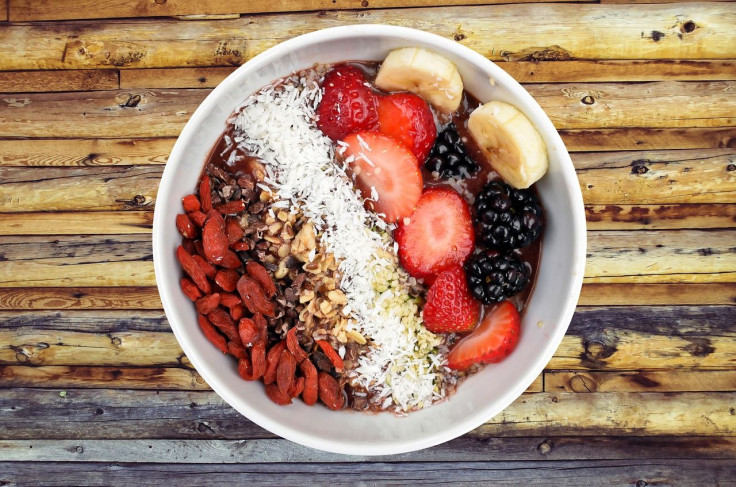Veganism, Other Non-Meat Diets Linked To Higher Bone Fracture Risk, Study Finds
KEY POINTS
- Researchers found that those who follow meat-less diets have a higher risk for fractures
- Vegans, in particular, have 2.3 times higher risk for hip fractures than meat-eaters
- It's possible that BMI, as well as protein and calcium consumption, contribute to the differences in risks
A large British study found that people who follow non-meat diets may be more prone to bone fractures. Among them, vegans appear to be the most at risk.
To determine possible differences between the fracture risks among people with different diets, a team of researchers analyzed the data collected from the long-term EPIC-Oxford study, which recruited tens of thousands of men and women from the U.K. between 1993 and 2001. The participants were divided into four diet groups. Among them, 29,380 were meat-eaters, 8,037 were fish-eaters or pescatarians, 15,499 were vegetarians and 1,982 were vegans.
After an average of 17.6 years of follow-up, the researchers got a record of 3,941 total fractures, which included wrist, arm, hip, leg and ankle fractures.
The results revealed that vegetarians, vegans and pescatarians had a higher risk for hip fractures compared to meat-eaters. In particular, vegans had heightened risks for total, hip, leg and vertebral fractures.
"We found that vegans had a higher risk of total fractures which resulted in close to 20 more cases per 1000 people over a 10-year period compared to people who ate meat," study lead author Dr. Tammy Tong of the University of Oxford said in a news release from Biomed Central (BMC). "The biggest differences were for hip fractures, where the risk in vegans was 2.3 times higher than in people who ate meat, equivalent to 15 more cases per 1000 people over 10 years."
Even after the researchers made adjustments to count for the participants' Body Mass Index (BMI) and the amount of calcium in their diets, the difference was lower but still remained significant.
BMI, Calcium And Protein Intake
According to the researchers, it's possible that those who don't eat meat have higher risks for bone fractures is partly because they have a lower BMI and because they consume lower levels of calcium and protein. As the researchers explained in their study, there had been evidence of an "inverse link" between BMI and some fractures, likely because people with higher BMI tend to have stronger bones and better cushioning against the impact of a fall.
Lower protein and calcium intake may also have something to do with the increased fracture risks among people who don't eat meat since both calcium and protein have been linked to bone health. In the case of pescatarians, they eat fish but not meat, while the vegetarians eat neither fish nor meat but consume dairy and eggs. Vegans, however, don't eat anything from animals.
"Well-balanced and predominantly plant-based diets can result in improved nutrient levels and have been linked to lower risks of diseases including heart disease and diabetes," Dr. Tong said. "Individuals should take into account the benefits and risks of their diet, and ensure that they have adequate levels of calcium and protein and also maintain a healthy BMI, that is, neither under nor overweight."
That said, the researchers noted the possibility that there might be some other unaccounted for factor that could explain why vegans had a higher overall risk for fractures in their study. For instance, they were not able to differentiate the fractures that resulted from poor bone health and those that resulted from accidents. The data on calcium supplement use among the different diet groups was also unavailable.
"This is the first prospective study of diet group with both total and multiple specific fracture sites in vegetarians and vegans, and the findings suggest that bone health in vegans requires further research," the researchers wrote.
The study is published in the journal BMC Medicine.

© Copyright IBTimes 2025. All rights reserved.






















